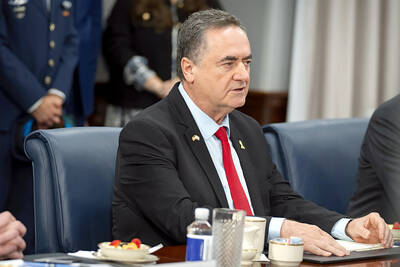The isolated Central Asian state of Turkmenistan votes on Sunday in elections expected to see Turkmen President Gurbanguly Berdymukhamedov sail to a new term against only the most token opposition.
Berdymukhamedov, an ex-dentist turned top functionary who came to power after the death of his eccentric predecessor, former Turkmen president Saparmurat Niyazov, in 2006, made a show of throwing the elections open to the opposition, but this has not resulted in any genuine challenge.
A total of seven candidates are standing against Berdymukhamedov, but all are members of the obsequiously loyal Turkmen elite, including ministers appointed by the president and figures who have eulogized him in public.
Berdymukhamedov, nominated by the ruling Democratic Party, the union of war veterans, the womens’ association and the young people’s union, appears set to repeat his landslide victory of 2007 where he won over 89 percent of the vote.
“This trust I take as an acknowledgment of the positive results of the work I have started with my native people and the important work for fundamental reform of our state,” he said.
Berdymukhamedov has started cautious reform after the excesses of the notorious personality cult under Niyazov, reopening cinemas, theaters and research institutes that were shut down during his predecessor’s rule.
Western energy majors are competing with China to exploit Turkmenistan’s vast gas reserves while European firms are taking advantage of a construction bonanza in a multibillion US dollar building program in Ashgabat.
In July last year, Berdymukhamedov unexpectedly announced that the exiled opposition, which denounced him as a dictator, could take part in the elections. However, no one showed interest, fearing immediate arrest on arrival.
During his presidential campaign last month, he promised to “develop the political system, create new parties and organize independent media.”
Instead, Berdymukhamedov is running against figurehead candidates like Turkmen Energy and Industry Minister Yarmukhammet Orazgulyev or Kakageldi Abdyllayev, the chief executive of a subsidiary of state energy firm Turkmengaz.
Other token rivals include his water resources minister and the director of a cotton factory.
In an unusual step for any candidate in an election, one hopeful showered his supposed opponent Berdymukhamedov with praise in his campaign manifesto.
“In the Era of Rebirth, under the wise and respected leadership of the president, grandiose changes have taken place in the interests of every single person,” said Redzhep Bazarov, a local agriculture official.
The candidates published their pre-election programs in newspapers, but all are similar and none contain a word of criticism about the incumbent president.
Most of their pre-election meetings around the country have taken place in the main regional theaters adorned with portraits of a smiling Berdymukhamedov.
His promise in July to open the elections up to the opposition mysteriously came days after a series of blasts outside Ashgabat blamed on a fireworks depot fire that left 15 dead.
However, opposition leaders in exile said a munitions depot had blown up, killing 200 people in a massive catastrophe.

STEPPING UP: Diminished US polar science presence mean opportunities for the UK and other countries, although China or Russia might also fill that gap, a researcher said The UK’s flagship polar research vessel is to head to Antarctica next week to help advance dozens of climate change-linked science projects, as Western nations spearhead studies there while the US withdraws. The RRS Sir David Attenborough, a state-of-the-art ship named after the renowned British naturalist, would aid research on everything from “hunting underwater tsunamis” to tracking glacier melt and whale populations. Operated by the British Antarctic Survey (BAS), the country’s polar research institute, the 15,000-tonne icebreaker — boasting a helipad, and various laboratories and gadgetry — is pivotal to the UK’s efforts to assess climate change’s impact there. “The saying goes

Police in China detained dozens of pastors of one of its largest underground churches over the weekend, a church spokesperson and relatives said, in the biggest crackdown on Christians since 2018. The detentions, which come amid renewed China-US tensions after Beijing dramatically expanded rare earth export controls last week, drew condemnation from US Secretary of State Marco Rubio, who on Sunday called for the immediate release of the pastors. Pastor Jin Mingri (金明日), founder of Zion Church, an unofficial “house church” not sanctioned by the Chinese government, was detained at his home in the southern city of Beihai on Friday evening, said

TICKING CLOCK: A path to a budget agreement was still possible, the president’s office said, as a debate on reversing an increase of the pension age carries on French President Emmanuel Macron yesterday was racing to find a new prime minister within a two-day deadline after the resignation of outgoing French Prime Minister Sebastien Lecornu tipped the country deeper into political crisis. The presidency late on Wednesday said that Macron would name a new prime minister within 48 hours, indicating that the appointment would come by this evening at the latest. Lecornu told French television in an interview that he expected a new prime minister to be named — rather than early legislative elections or Macron’s resignation — to resolve the crisis. The developments were the latest twists in three tumultuous

FIRST STAGE: Hamas has agreed to release 48 Israeli hostages in exchange for 250 ‘national security prisoners’ as well as 1,700 Gazans, but has resisted calls to disarm Israel plans to destroy what remains of Hamas’ network of tunnels under Gaza, working with US approval after its hostages are freed, it said yesterday. Israeli Minister of Defense Israel Katz said that the operation would be conducted under an “international mechanism” led by the US. “Israel’s great challenge after the hostage release phase will be the destruction of all Hamas terrorist tunnels in Gaza,” Katz said. “I have ordered the army to prepare to carry out this mission,” he added. Hamas operates a network of tunnels under Gaza, allowing its fighters to operate out of sight of Israeli reconnaissance. Some have passed under